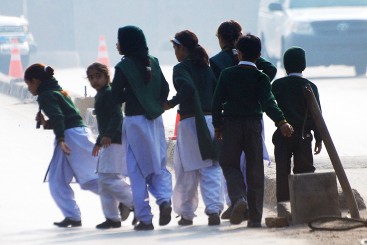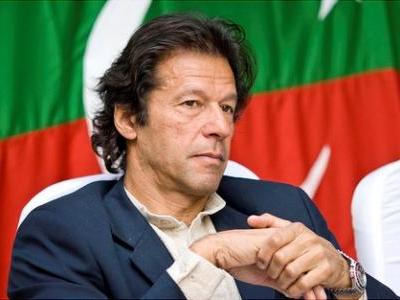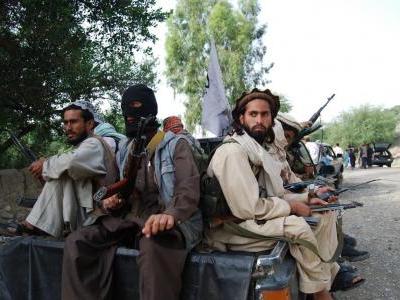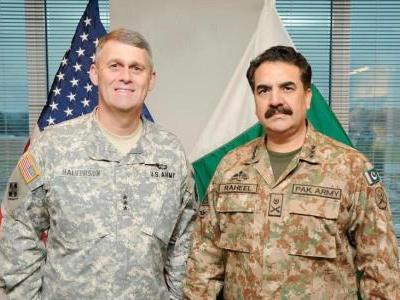Wed, 12/17/2014 - 01:09
Lessons from the Peshawar army school attack
The year that saw Malala Yousafzai win the Nobel Peace Prize is drawing to a close with a horrific, senseless attack on schoolchildren in Peshawar. So much for our hopes and dreams of a world where kids can simply go to school without the fear of losing their lives.
As images of terrified, bloodied children fleeing in their little green school sweaters haunt our collective consciousness, we owe to the 132 children and nine staff members who did not survive to cut the crap and address the situation that bred this kind of attack.

If there’s one bleak ray of light in this tragedy, it’s the hope that the sheer callousness of the Peshawar school massacre can serve as the tipping point that will unite a divided nation and help establish a cohesive response to a problem that threatens the next generation and the very future of Pakistan.
May be, just may be, the people of Pakistan will show the Tehreek-i-Taliban that this time, by murdering defenseless schoolchildren, the jihadist group has made a strategic mistake as Taliban apologists either have their moment of awakening or are exposed for the dangerous games they are playing.
There were heartening signs of solidarity and cohesion emerging even as the army was sweeping through the Peshawar army school and kids were being ferried out of the premises.
Politicians from the opposition PPP (Pakistan Peoples Party) denounced the attack and called on Pakistanis to “unite to fight the scourge” of terrorism.
Imran Khan, chairman of the PTI (Pakistan Tehreek-e-Insaf) has assured Prime Minister Nawaz Sharif of his cooperation in fighting terrorism. “No one can blame us for not standing with the government in its fight against terrorists. We have always supported the government,” said Khan, rather disingenuously.
Cricketer-politician plays and spins his supporters
The cricketer-turned-politician has shamelessly flirted with the Taliban, tapping into Pakistani hopes for change while proceeding with his right-wing, Islamist-soft, military-backed agenda.

This meant collaborating with the Islamist Jamaat-e-Islami party, touting a “talking to the Taliban” agenda and singularly – and cynically – maintaining the focus on US drone strikes, always the US drone strikes.
In a country where so much is going wrong and so many people are paying the price, nothing beats blaming the outsiders – the USA, the CIA, India, the Indian intelligence and security services – there are plenty of them to go around and clog up the airwaves.
Blaming the US and the CIA has a particular resonance for old school lefties in New York, New Delhi, London and other Western capitals.
But while the international left and the Pakistani right join forces in blasting the US, daily life in Pakistan gets more difficult and dangerous because the Islamist genie was bred in a military-intelligence petri-dish decades ago. Now that the monsters have been let out to flourish, it’s going to be that much harder to put them back in the bottle. The sooner Pakistanis realize their Islamist-supporting leaders are pulling the wool over their eyes by blaming foreigners, the better.
In the wake of the Peshawar army school attack, even politicians like Khan are doing and saying the right things. Khan has postponed a Dec. 18 countrywide shutdown to protest his party’s allegations of election rigging in the 2013 poll.
Khan’s new, untested party came third in the much-hailed election, and only the truly naïve believe the PTI could have beaten the old, established parties of the Bhuttos and the Sharifs, but never mind. Khan’s protests against the democratically elected administration have periodically ground cities to a halt, sparking sometimes deadly clashes and increased pressure on the government – in a nation where the military has historically undermined and unseated civilian governments.
Among Khan’s critics, there are many who believe the PTI chairman is backed by the country’s powerful military-intelligence establishment – especially since the generals have a historically antagonistic relationship with Sharif. This may or may not be true. “Deep state” conspiracy theories abound in Pakistan and this is not the time to rake up old ghosts – not when innocent school kids are being killed.
This is the time however to confront the roots of the problem that have got us where we are today.
The ‘talking to the Taliban industry’
Over the past few months and years, a new slogan has crept into diplomatic circles, think-tank discourse and dinner table conversations across Pakistan, Afghanistan as well as regional and international capitals.
For some years now, “talking to the Taliban” has turned into the “in” thing. This is true for both, the Afghan and Pakistani Taliban. The two groups may be different, with their own sometimes-competing, sometimes-cooperating factions. But in the end, they both swear allegiance to Mullah Omar and they have emerged from the same subcontinental jihadist womb.

Try as I might, I’ve never been convinced of this “talking to the Taliban” strategy in Afghanistan or Pakistan. In the absence of any concrete, or even theoretical, proof that it could work, I’ve now concluded that this so-called strategy is simply being plugged and pushed by what I call the “talking to the Taliban industry”.
There’s money to be made, influence to be gained and political points to be scored in this business. Middlemen are paid handsomely – sometimes for offering up fake Taliban negotiators for talks that go nowhere. If an oil-rich, Gulf state like Qatar or Saudi Arabia puts some money behind the initiative, even better. Then there are the experts and academics building their reputations plugging their singular idea. Lastly, there are the politicians who lack the will or ability to confront a massive problem and sign up instead for the weaselly option.
Talking to the Taliban won’t work because there will always be hardliners who are harder than the old hardliners. Jihadist groups may fragment and splinter, but they’re all children of the same mother and the enemy never changes, because if there’s no enemy, they lose their raison d’etre.
The answer lies not just in crushing the militants, but also attacking the convoluted thinking that breeds jihadists and supporters of the jihad.
A good jihadist and a bad jihadist
In his phone calls to the media, Tehreek-e-Taliban spokesman Muhammad Khorasani said the Peshawar school attack was the group’s response to the Pakistani military operations launched in North Waziristan and the Khyber Pakhtunkhwa agency earlier this year.
Given the lack of vision, the shades of sympathy for the Taliban and the fuzzy “talking to the Taliban” discourse, the political response to the army operations before the Dec. 13 attack was lukewarm.
But that appears to be changing.
Prime Minister Sharif has stressed that, “until and unless this country is cleansed from terrorism, this war effort will not stop, no one should doubt this.” Lawmakers in the most populous province of Punjab have passed a resolution condemning the attack and expressing solidarity with the armed forces in the ongoing military operation.
The Pakistani military has conducted operations in the tribal regions in the past. The problem though, is that it has shown little sign of tackling militant Islamism in its entirety. Pakistan today is home to myriad jihadist groups from the Afghan and Pakistani Taliban, to the Punjab-based groups concentrating on Indian-controlled Kashmir.
Until and unless the military realizes there is no such thing as a good jihadist and a bad jihadist, Pakistan is never going to address the root of the problem threatening to devour the nation.
During a recent visit to the US, Pakistani army chief Gen. Raheel Sharif noted that the current operation was against militants of all hues. “It is without any discrimination, whether it is Haqqani network [a faction of the Afghan Taliban], TTP [the Pakistani Taliban] or any other group.”

Gen. Sharif’s remarks came just days after Pakistan’s National Security Advisor to the Prime Minister, Sartaj Aziz, explicitly supported the country’s “good Taliban, bad Taliban” policy.
"Why should America's enemies unnecessarily become our enemies?” asked Aziz in an interview with the BBC’s Urdu service. “When the United States attacked Afghanistan, all those that were trained and armed by us together were pushed towards Pakistan. Some of them were dangerous for us and some were not. Why must we make enemies out of them all?"
The answer Mr. Aziz, is perfectly clear. The jihadist blowback, when it comes, is indiscriminate. History has shown that militant Islamists turn around to bite the hands that have fed them. The likes of Aziz and Khan can rail as much as they like against the USA, India, the so-called West, whatever. But their dangerously misguided policies have spectacularly failed to keep their citizens safe.
Learning the lessons from Syria-Iraq
The Islamization birthed by the late Gen. Zia ul-Haq is so entrenched today, that it’s hard to shake the conviction among an alarming number of Pakistanis that a “good Muslim” (whatever that is) cannot be a bad human being. So, if the Taliban are “good Muslims” they can’t be bad – it’s the infidel outsider to blame.
May be, just may be, the Pakistani military is starting to see the folly of its ways. The generals are keenly watching what’s going on in Syria-Iraq with Daesh/Islamic State/ISIS/ISIL. Nobody wants to see a duplication of that nightmare on their home soil.
After a gut-wrenching day covering one of the saddest stories of my career, I’ve decided to take heart with Gen. Sharif’s pledge to target “all militants without any discrimination”. But then I checked Twitter and saw the hashtag #StopIndianTerrorismInPak trending. A fair number of the Twitter posts were Imran Khan supporters with profile shots of the cricketer-turned-politician.
This is the sort of thing that needs to change in the days and months to come. Or else the lessons of the Peshawar army school attack will never be learned. And that would be a truly depressing missed opportunity.
As images of terrified, bloodied children fleeing in their little green school sweaters haunt our collective consciousness, we owe to the 132 children and nine staff members who did not survive to cut the crap and address the situation that bred this kind of attack.

If there’s one bleak ray of light in this tragedy, it’s the hope that the sheer callousness of the Peshawar school massacre can serve as the tipping point that will unite a divided nation and help establish a cohesive response to a problem that threatens the next generation and the very future of Pakistan.
May be, just may be, the people of Pakistan will show the Tehreek-i-Taliban that this time, by murdering defenseless schoolchildren, the jihadist group has made a strategic mistake as Taliban apologists either have their moment of awakening or are exposed for the dangerous games they are playing.
There were heartening signs of solidarity and cohesion emerging even as the army was sweeping through the Peshawar army school and kids were being ferried out of the premises.
Politicians from the opposition PPP (Pakistan Peoples Party) denounced the attack and called on Pakistanis to “unite to fight the scourge” of terrorism.
Imran Khan, chairman of the PTI (Pakistan Tehreek-e-Insaf) has assured Prime Minister Nawaz Sharif of his cooperation in fighting terrorism. “No one can blame us for not standing with the government in its fight against terrorists. We have always supported the government,” said Khan, rather disingenuously.
Cricketer-politician plays and spins his supporters
The cricketer-turned-politician has shamelessly flirted with the Taliban, tapping into Pakistani hopes for change while proceeding with his right-wing, Islamist-soft, military-backed agenda.

This meant collaborating with the Islamist Jamaat-e-Islami party, touting a “talking to the Taliban” agenda and singularly – and cynically – maintaining the focus on US drone strikes, always the US drone strikes.
In a country where so much is going wrong and so many people are paying the price, nothing beats blaming the outsiders – the USA, the CIA, India, the Indian intelligence and security services – there are plenty of them to go around and clog up the airwaves.
Blaming the US and the CIA has a particular resonance for old school lefties in New York, New Delhi, London and other Western capitals.
But while the international left and the Pakistani right join forces in blasting the US, daily life in Pakistan gets more difficult and dangerous because the Islamist genie was bred in a military-intelligence petri-dish decades ago. Now that the monsters have been let out to flourish, it’s going to be that much harder to put them back in the bottle. The sooner Pakistanis realize their Islamist-supporting leaders are pulling the wool over their eyes by blaming foreigners, the better.
In the wake of the Peshawar army school attack, even politicians like Khan are doing and saying the right things. Khan has postponed a Dec. 18 countrywide shutdown to protest his party’s allegations of election rigging in the 2013 poll.
Khan’s new, untested party came third in the much-hailed election, and only the truly naïve believe the PTI could have beaten the old, established parties of the Bhuttos and the Sharifs, but never mind. Khan’s protests against the democratically elected administration have periodically ground cities to a halt, sparking sometimes deadly clashes and increased pressure on the government – in a nation where the military has historically undermined and unseated civilian governments.
Among Khan’s critics, there are many who believe the PTI chairman is backed by the country’s powerful military-intelligence establishment – especially since the generals have a historically antagonistic relationship with Sharif. This may or may not be true. “Deep state” conspiracy theories abound in Pakistan and this is not the time to rake up old ghosts – not when innocent school kids are being killed.
This is the time however to confront the roots of the problem that have got us where we are today.
The ‘talking to the Taliban industry’
Over the past few months and years, a new slogan has crept into diplomatic circles, think-tank discourse and dinner table conversations across Pakistan, Afghanistan as well as regional and international capitals.
For some years now, “talking to the Taliban” has turned into the “in” thing. This is true for both, the Afghan and Pakistani Taliban. The two groups may be different, with their own sometimes-competing, sometimes-cooperating factions. But in the end, they both swear allegiance to Mullah Omar and they have emerged from the same subcontinental jihadist womb.

Try as I might, I’ve never been convinced of this “talking to the Taliban” strategy in Afghanistan or Pakistan. In the absence of any concrete, or even theoretical, proof that it could work, I’ve now concluded that this so-called strategy is simply being plugged and pushed by what I call the “talking to the Taliban industry”.
There’s money to be made, influence to be gained and political points to be scored in this business. Middlemen are paid handsomely – sometimes for offering up fake Taliban negotiators for talks that go nowhere. If an oil-rich, Gulf state like Qatar or Saudi Arabia puts some money behind the initiative, even better. Then there are the experts and academics building their reputations plugging their singular idea. Lastly, there are the politicians who lack the will or ability to confront a massive problem and sign up instead for the weaselly option.
Talking to the Taliban won’t work because there will always be hardliners who are harder than the old hardliners. Jihadist groups may fragment and splinter, but they’re all children of the same mother and the enemy never changes, because if there’s no enemy, they lose their raison d’etre.
The answer lies not just in crushing the militants, but also attacking the convoluted thinking that breeds jihadists and supporters of the jihad.
A good jihadist and a bad jihadist
In his phone calls to the media, Tehreek-e-Taliban spokesman Muhammad Khorasani said the Peshawar school attack was the group’s response to the Pakistani military operations launched in North Waziristan and the Khyber Pakhtunkhwa agency earlier this year.
Given the lack of vision, the shades of sympathy for the Taliban and the fuzzy “talking to the Taliban” discourse, the political response to the army operations before the Dec. 13 attack was lukewarm.
But that appears to be changing.
Prime Minister Sharif has stressed that, “until and unless this country is cleansed from terrorism, this war effort will not stop, no one should doubt this.” Lawmakers in the most populous province of Punjab have passed a resolution condemning the attack and expressing solidarity with the armed forces in the ongoing military operation.
The Pakistani military has conducted operations in the tribal regions in the past. The problem though, is that it has shown little sign of tackling militant Islamism in its entirety. Pakistan today is home to myriad jihadist groups from the Afghan and Pakistani Taliban, to the Punjab-based groups concentrating on Indian-controlled Kashmir.
Until and unless the military realizes there is no such thing as a good jihadist and a bad jihadist, Pakistan is never going to address the root of the problem threatening to devour the nation.
During a recent visit to the US, Pakistani army chief Gen. Raheel Sharif noted that the current operation was against militants of all hues. “It is without any discrimination, whether it is Haqqani network [a faction of the Afghan Taliban], TTP [the Pakistani Taliban] or any other group.”

Gen. Sharif’s remarks came just days after Pakistan’s National Security Advisor to the Prime Minister, Sartaj Aziz, explicitly supported the country’s “good Taliban, bad Taliban” policy.
"Why should America's enemies unnecessarily become our enemies?” asked Aziz in an interview with the BBC’s Urdu service. “When the United States attacked Afghanistan, all those that were trained and armed by us together were pushed towards Pakistan. Some of them were dangerous for us and some were not. Why must we make enemies out of them all?"
The answer Mr. Aziz, is perfectly clear. The jihadist blowback, when it comes, is indiscriminate. History has shown that militant Islamists turn around to bite the hands that have fed them. The likes of Aziz and Khan can rail as much as they like against the USA, India, the so-called West, whatever. But their dangerously misguided policies have spectacularly failed to keep their citizens safe.
Learning the lessons from Syria-Iraq
The Islamization birthed by the late Gen. Zia ul-Haq is so entrenched today, that it’s hard to shake the conviction among an alarming number of Pakistanis that a “good Muslim” (whatever that is) cannot be a bad human being. So, if the Taliban are “good Muslims” they can’t be bad – it’s the infidel outsider to blame.
May be, just may be, the Pakistani military is starting to see the folly of its ways. The generals are keenly watching what’s going on in Syria-Iraq with Daesh/Islamic State/ISIS/ISIL. Nobody wants to see a duplication of that nightmare on their home soil.
After a gut-wrenching day covering one of the saddest stories of my career, I’ve decided to take heart with Gen. Sharif’s pledge to target “all militants without any discrimination”. But then I checked Twitter and saw the hashtag #StopIndianTerrorismInPak trending. A fair number of the Twitter posts were Imran Khan supporters with profile shots of the cricketer-turned-politician.
This is the sort of thing that needs to change in the days and months to come. Or else the lessons of the Peshawar army school attack will never be learned. And that would be a truly depressing missed opportunity.
Tags for all blogs :
Comments or opinions expressed on this blog are those of the individual contributors only, and do not necessarily represent the views of FRANCE 24. The content on this blog is provided on an "as-is" basis. FRANCE 24 is not liable for any damages whatsoever arising out of the content or use of this blog.




0 Comments
Post new comment